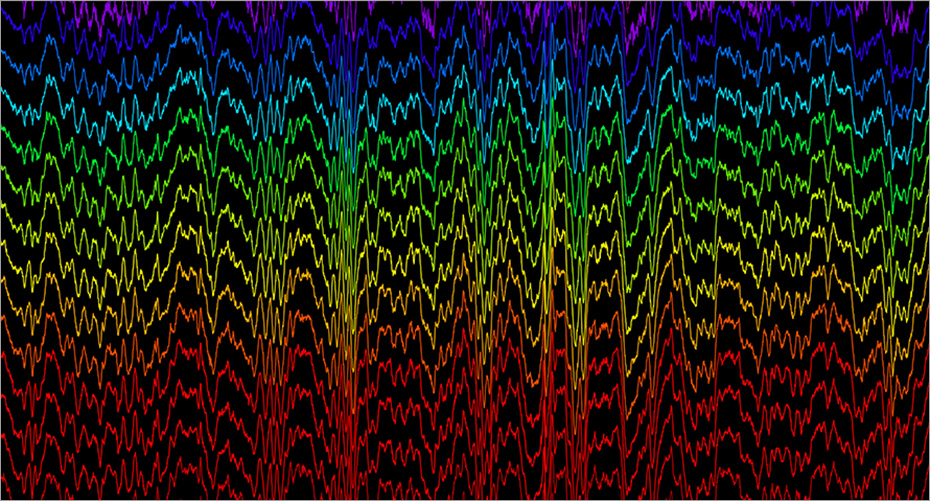Professor Andrew Randall researches into circuits in the brain and how brain cells talk to each other, and how these go wrong in neurological diseases which cause dementia.

Brain networks and dementia
Brain networks and dementia
To aid early diagnosis and the quest for better treatments, our research seeks to find out more about how the brain’s circuits malfunction in dementia.
These neuronal circuits influence how we experience the world, and damage to these connections cause many of the distressing symptoms associated with dementia, from a lack of spatial orientation and awareness to memory loss and psychosis.
In order to explore what causes this, we make electrical measurements of cell activity and circuit function in the brain to probe how such problems lead to the symptoms of dementia including Alzheimer’s disease. The team use both mouse models and human neurones produced from stem cells to gain a much deeper insight into what goes wrong in the brain in dementia, with a view to identifying targets for new treatments and therapies.
For more information visit the Exeter Applied Neurophysiology group website
Brain networks and dementia - primary investigators
| Name | Role | Keywords |
|---|---|---|
| Professor Andrew Randall | Professor in Applied Neurophysiology | Neurophysiology, electrophysiology, cellular imaging, Alzheimer’s Disease |
| Dr Jonathan Brown | Senior Lecturer | Neurophysiology, Alzheimer’s disease, frontotemporal dementia, schizophrenia, Synaptic and intrinsic neurophysiology. |
| Dr Mick Craig | Research Fellow | Neural circuit mapping, inhibitory interneurons, neuronal oscillations, optogenetics, chemogenetics, electrophysiology, behaviour, Alzheimer’s disease and psychiatric illness |

